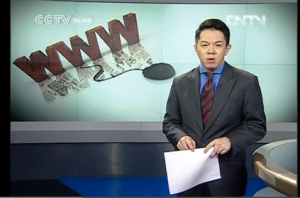Based on KPMG’s 2012 media and telecommunications industry outlook survey which reflects the responses of 101 media and telecom sector executives from large, U.S. –based companies with $100 million or more in annual revenue, more than 90% of the executives surveyed expect their companies to grow their activities around digital devices, services, and content distribution. “48% of the respondents expect capital spending increased over the next year, specific, 56% spending will likely be in the areas of new products and services and 43% in information technology.”
On one hand, the prosperous development of the social media network and related service apps boom the media and telecommunication industry, accelerating the telecommunication technology innovation, increasing the demand of dynamic functions smart phone devices, and proposing of customized service.
One the other hand, the convenience of the social network apps raises challenge for the traditional telecommunication services.
Recently, China’s information ministry is not happy with Tencent. As the giant tech company in China, Tencent has taken shares in everything from instant messaging to social networks. Besides given birth to QQ, the top one instant message software which own 1 billion register users and 0.29 billion active users in China, Tencent now won the fame around world by the instant voice message social network app WeChat.
WeChat Oversea TV Commercial (video)
Originally as a mobile phone text and voice messaging communication service. WeChat provides multimedia communication flexibility, including text, hold-to-talk voice as well as broadcast (one-to-many) messaging. You can share photo and video with your friends at Moments, and exchange contact information. Further, WeChat also supports social networking that you can easily chat with and befriend local and international WeChat users by location-based social plug-ins (‘Shake’, ‘Look Around’, and ‘Drift Bottle’).
Benefits from its flexibility and convenience, initially launched in January 2011, it has 300 million users as of January 2013.
However, “ With the huge growth of free texting services, operators are feeling the strain. In 2011, they lost some $14 billion in revenue to OTT messaging services”
Goaded by its biggest telecom companies, which are state-owned, the Chinese government seems need to take some action. Rumors rocked that government may ask Tencent to pay telecom companies a fee, or the Wechat user would be charged extra traffic fee. WeChat is no longer “ free”.
The intervention seems inevitable, enormous profit margins involved in traditional SMS service. “A text message consumes a mere 140 bytes. Voice calls use about eight times as much bandwidth per second. Yet an SMS and a minute of conversation are generally charged at comparable rates.”
According to McKinsey’s report, “one Dutch carrier saw text messages per subscriber go from growing 33% in the third quarter of 2010 to declining 11% in Q2 2011. WhatsApp’s smartphone penetration over the same period grew from 5% to 85%.”
How governments balance the encouraging of information technology innovation and supporting of traditional business model becomes another heated topic. The success of new product and service launching is always at the expense of traditional business customer base losing. To innovate or to protect?
Step back, even though there is no WeChat, enormous social median network apps would take over large share of telecom companies’ revenue. Rather than let others innovation companies around the word steal away the revenue. Government sure would prefer let in-house Giant, such as Tencent, to in charge of the huge market. The reason is simple, one is much easier to control.
Besides ask help from government, telecom companies should have some other effective respond to save its business. Double charge traffic fee obvious is the worst suggestion that absolutely will evoke 1.3 billion people’s anger. More and more customers use social media network apps is not just because it is free, since various phone plan in China, such as RMB20 unlimited SMS, is already an economical deal. Two dominant factors make it a super star. First, it is convenient that you don’t need to type; one figure is enough whenever and wherever you are. Second, the power of organizational network, people around you all use it, how long you could protect yourself from the impact of new technologies? To save its revenue, Telecom companies should find the root and then brainstorm.




